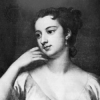Mary Wortley Montagu

Mary Wortley Montagu
Lady Mary Wortley Montaguwas an English aristocrat, letter writer and poet. Lady Mary is today chiefly remembered for her letters, particularly her letters from travels to the Ottoman Empire, as wife to the British ambassador to Turkey, which have been described by Billie Melman as "the very first example of a secular work by a woman about the Muslim Orient". Aside from her writing, Lady Mary is also known for introducing and advocating for smallpox inoculation to Britain after her...
NationalityEnglish
ProfessionWriter
Date of Birth26 May 1689
My chief study all my life has been to lighten misfortunes and multiply pleasures, as far as human nature can.
Nature is seldom in the wrong, custom always.
I have never, in all my various travels, seen but two sorts of people I mean men and women, who always have been, and ever will be, the same. The same vices and the same follies have been the fruit of all ages, though sometimes under different names.
Nature is indeed a specious ward, nay, there is a great deal in it if it is properly understood and applied, but I cannot bear to hear people using it to justify what common sense must disavow. Is not Nature modifed by art in many things? Was it not designed to be so? And is it not happy for human society that it is so? Would you like to see your husband let his beard grow, until he would be obliged to put the end of it in his pocket, because this beard is the gift of Nature?
We should ask, not who is the most learned, but who is the best learned.
It has all been most interesting.
Tis a sort of duty to be rich, that it may be in one's power to do good, riches being another word for power.
We are educated in the grossest ignorance, and no art omitted to stifle our natural reason; if some few get above their nurses instructions, our knowledge must rest concealed and be as useless to the world as gold in the mine.
It is 11 years since I have seen my figure in a glass [mirror]. The last reflection I saw there was so disagreeable I resolved to spare myself such mortification in the future.
Nobody can deny but religion is a comfort to the distressed, a cordial to the sick, and sometimes a restraint on the wicked...
In short I will part with anything for you but you.
Whoever will cultivate their own mind will find full employment. Every virtue does not only require great care in the planting, but as much daily solicitude in cherishing as exotic fruits and flowers; the vices and passions (which I am afraid are the natural product of the soil) demand perpetual weeding. Add to this the search after knowledge. . . and the longest life is too short.
No modest man ever did or ever will make a fortune.
I believe more follies are committed out of complaisance to the world, than in following our own inclinations.